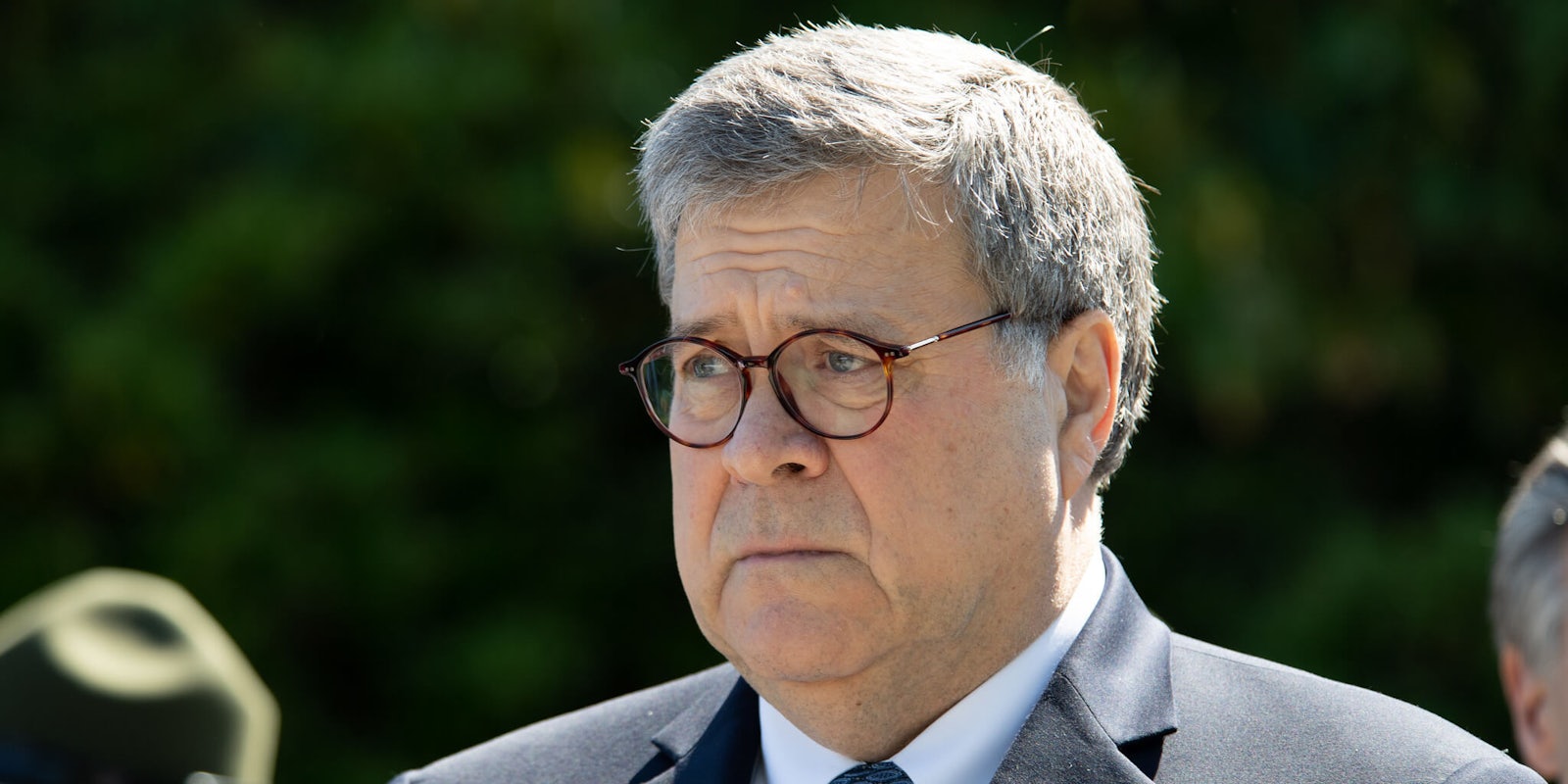Attorney General William Barr criticized Section 230 of the Communications Decency Act on Tuesday, a provision that provides the tech industry with a liability shield that has come under fire from lawmakers recently.
Barr’s remarks came at the beginning of a workshop hosted by the Department of Justice discussing Section 230. The section essentially protects websites from being liable for what is posted on them by third parties.
Specifically, the law says that “no provider or user of an interactive computer service shall be treated as the publisher or speaker of any information provided by another information content provider.”
The provision has been called “one of the most valuable tools for protecting freedom of expression and innovation on the internet” by the Electronic Frontier Foundation.
On Wednesday, Barr outright questioned whether the section was needed as tech companies have become so large.
“No longer are tech companies the underdog upstarts,” Barr said ahead of the workshop. “They have become titans of U.S. industry.”
Barr added:
“Given this changing technological landscape, valid questions have been raised on whether Section 230’s broad immunity is still necessary, at least in its current form. The increased size and power of online platforms has also left consumers with fewer options. The lack of feasible alternatives is relevant in the Section 230 discussion.”
The questioning of Section 230 has come up from both Democrats and Republicans. Several 2020 Democratic presidential hopefuls have said they’d be open to looking at the section, while others—like former Vice President Joe Biden—have come out and said they would want to repeal the section entirely.
Barr on Wednesday said the DOJ does not want to “advocate a position” on Section 230, but wanted to”convene a discussion that will help us examine Section 230 and its impact in further detail.”
READ MORE:
- Some Democrats are open to changing one of the internet’s bedrock principles
- New GOP bill would audit major tech companies for bias
- Maine implemented a strict privacy law—corporations are now claiming it violates their free speech
- Gillibrand calls for new federal agency to protect data privacy rights


